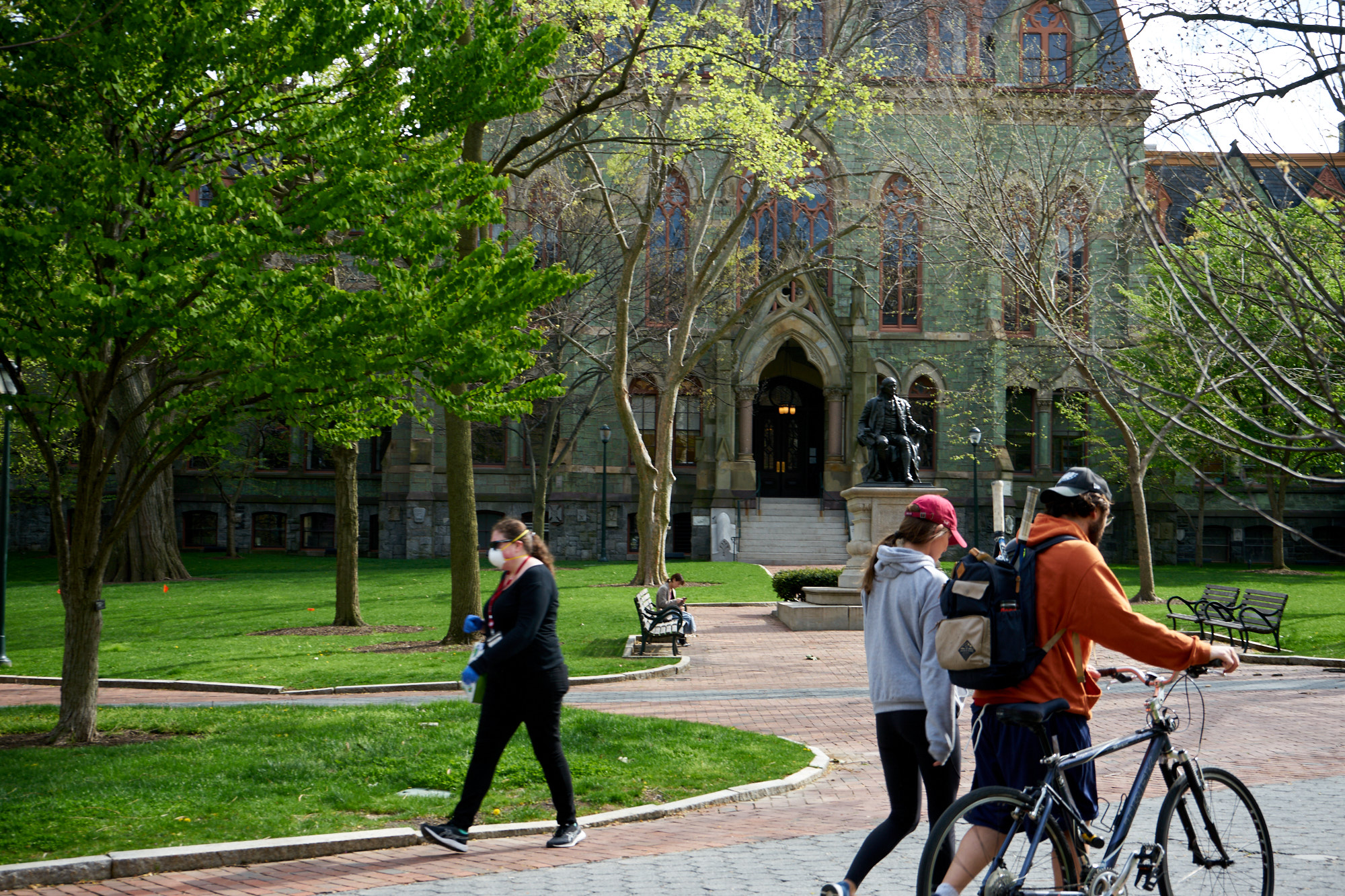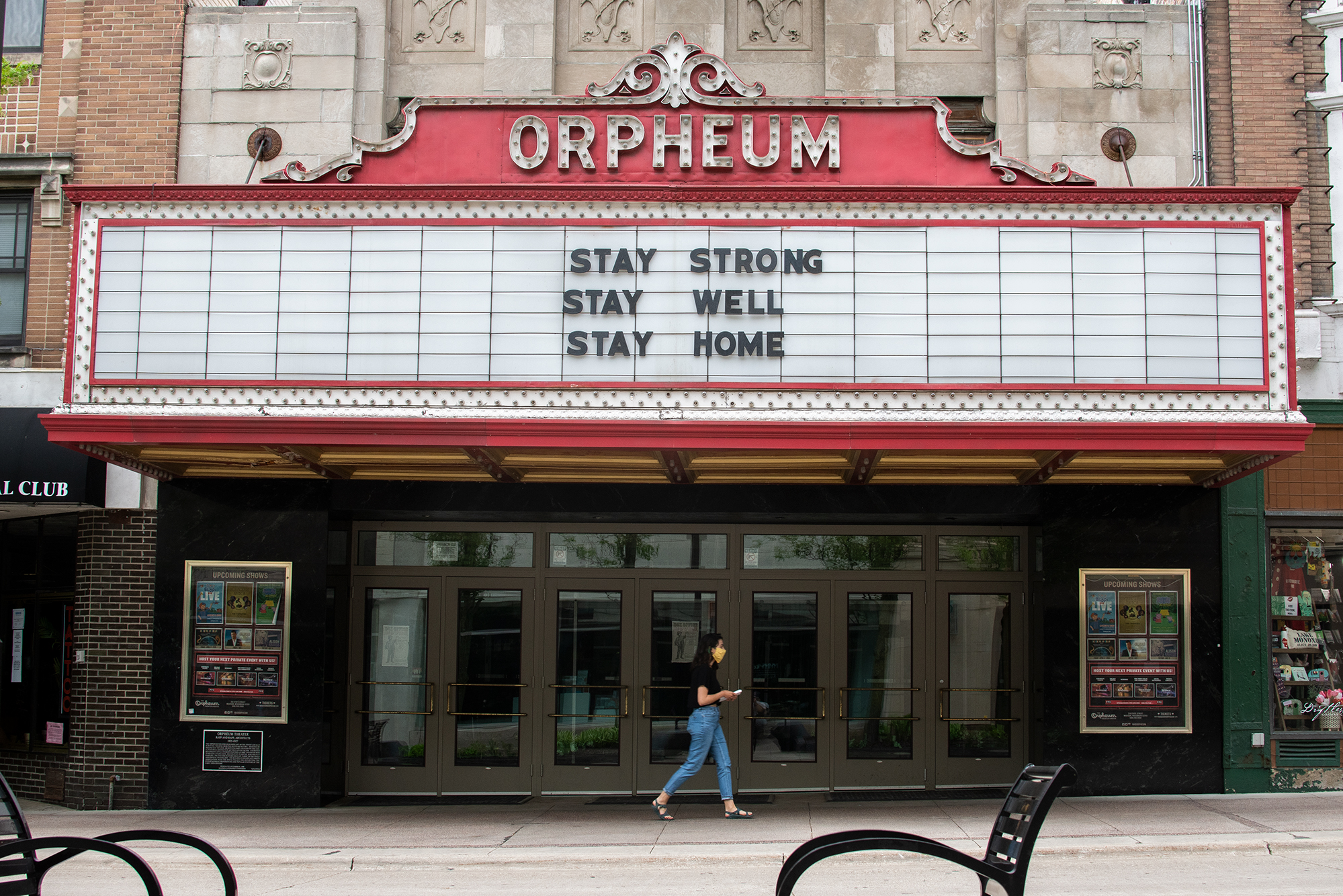
From the time college and university students left for the spring holiday until now, the entire higher university system seems to have been turned on its head. The one thing that has stubbornly stayed the same is the price tag students and their families are paying for tuition.
The COVID-19 public health emergency has forced classes onto Zoom, booted students from dorms, and left many educators wondering how to evaluate student performances. Realizing that many students are confronted with economic or health crises in their families, professors have changed assignments, offered classes as pass/fail so that students' GPAs will be protected, and found ways to support students remotely.
Meanwhile, hundreds of thousands of students are asking school administrators why they are still being charged the same tuition while their semester has been so disrupted. My school, the University of Pennsylvania, has amassed over 1,000 signatures from master's students over just a few days asking for a partial tuition reimbursement. At New York University, 2,600 MFA students signed a petition for a partial tuition refund, after which a dean sent students a tone-deaf video of her dancing to a R.E.M song. Over 40,000 students have signed a petition for the University of California system to provide refunds to students, while a petition of The Ohio State University has over 70,000 signatures attached. There are countless other petitions circulating online.
The Same Degree, but Not the Same
One of the key reasons stated in petitions demanding the refund is that online-only degrees—which emerged as an alternative to in-person programs long before the coronavirus pandemic—are across the board a cheaper option to a traditional degree program. The cost of a four-year bachelor's degree from Harvard's extension school is valued at $58,880 in tuition costs. That price would cover only a little over one year of an in-person education. At my school, a bachelor's education online costs $18,000 per eight credits. In-person, that year of coursework would cost $53,166. Other online programs at the master's and associate's level are also geared at providing a cheaper online alternative to prospective students.
Research shows that there is also a big difference in how effective these online classes are. Thanks to almost a decade of schools moving classes and programs online, we have some idea of how they stack up against a traditional, in-person class setting. There are serious doubts about students' ability to learn material when it is taught online at similar levels as they would in a classroom setting.
This is especially difficult for students who already struggle in college classes. At one for-profit college, research showed that taking online courses reduced average grades from a B- to a C when the same course was moved online, with students in the lowest quarter of the class seeing the largest drop in their grades. This could be because students have difficulty accessing online classes, because they might not have the benefit of having peers learning the same material with them, or because having online classes may yield more procrastination and cramming from students.
Online degrees tend to be offered more cheaply, perhaps because they are not recognized as being as high-quality as an in-person education, or perhaps because students struggle more in online classes. Data shows that, for MBA recipients, employers look more positively on a job candidate who has graduated from an in-person MBA program compared to someone who earned their MBA online. In other words, employers see an in-person degree as more valuable when they are choosing who will get hired. While there is enormous benefit in being able to provide remote instruction, especially now that the COVID-19 pandemic makes in-person classes impossible to many, it is not a one to one replacement for in-person classes.
School Tuition Squeeze
For many American families, college tuition is one of the largest investments they will make. In 2016, the average net price of college was 94 percent of the average family income for students in the lowest income quartile. Tuition costs for higher education have been rising steadily in the United States since the 1970s, and the impact has been widely reported on the student debt crisis. National student debt in the United States is now over $1.5 trillion.
Again, these costs do not affect all students equally. Black students earning bachelor's degrees have the highest borrowing rates and the highest average amounts borrowed, with the average student borrowing $34,000 to pay for college. According to The Wall Street Journal, graduates from historically black colleges have, on average, more student loan debt than students at other colleges. While lawmakers at a federal level have called for forgiveness of student loan debt, it remains to be seen if the federal government will act. If nothing is done, a Brookings Institute report warns that almost 40 percent of those with student loans could default by the year 2023.
It is in this context that students are calling for tuition refunds for the spring 2020 semester, in which a sudden worldwide pandemic has upended a normal semester of study and taken many classes online to platforms like Zoom. And, while some colleges have issued refunds for student fees, living expenses, and college meal plans, administrations have been silent on the issue of tuition costs.
Colleges and universities are already looking ahead to summer and fall semester classes, and weighing when their students can come back to study on campus. Many have already moved some summer classes online, and there are conversations about the possibility that fall classes may need to move online if the coronavirus emergency continues into the fall. Students and their families may understandably be wondering if they will be paying full price for a second or even a third semester of online courses.
Some schools have been proactive about offering refunds on other costs: Berea College, which does not charge tuition, offered a $1,000 refund of housing costs for students who were forced to leave the dorms early. The Nebraska State College system says it will offer a 60 percent refund on room and board for students who chose to move out of their dorms early. But, if this crisis is to continue, colleges and universities may start asking students to pay full price.
School administrators, however, are unlikely to jump at the opportunity to reduce school tuition. Many schools are already worried that they won't be able to fill the seats come the fall. Schools that rely on foreign students to meet recruitment and budget goals may struggle, and students may be less likely to travel to coronavirus hotspots (such as New York City) for school. Higher education, like the rest of us, will suffer economically if the worst predictions about a coming economic depression are true.
Nevertheless, these costs will be even harder for families to bear. With unemployment approaching record levels, many families may balk at paying in-person tuition for online coursework. For the tens of thousands asking for tuition refunds, this spring semester may be just the tip of the iceberg.









